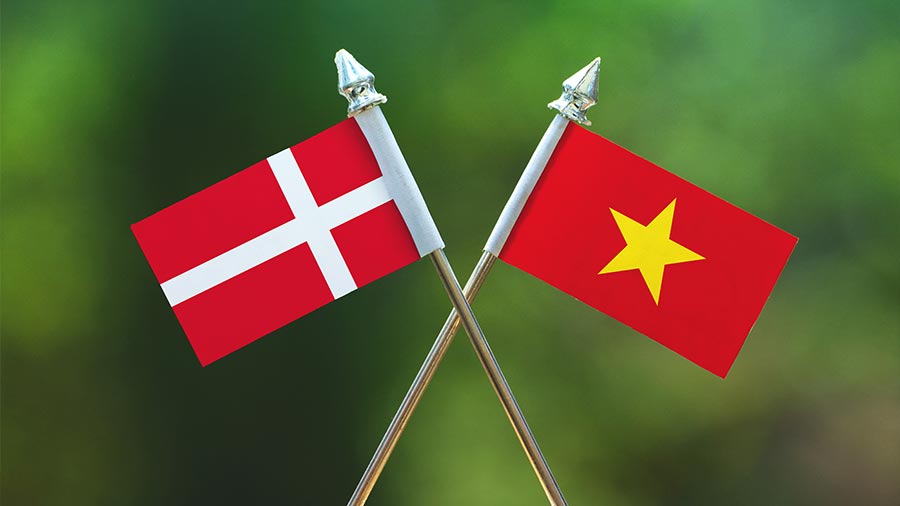Samsung to Aid Vietnam in the Creation of Domestic Support Industries
HCMC – The South Korean electronics group Samsung has agreed to cooperate with the Vietnamese government in order to help develop the country’s domestic support industries.
Of particular note is the Vietnam Association of Foreign Invested Enterprises (VAFIE) who will also partner with Samsung during this period of cooperation. Specifically, VAFIE will organize workshops where 20 specialists from Samsung will talk about the requirements needed for Vietnamese enterprises to become official suppliers to Samsung. One hundred domestic mechanical and electronics enterprises are expected to join these workshops. It is hoped that, through these meetings, Vietnamese firms and Samsung will learn more about the business operations of each other.
 RELATED: Dezan Shira & Associates’ Pre-Investment, Market Entry Strategy Advisory Services
RELATED: Dezan Shira & Associates’ Pre-Investment, Market Entry Strategy Advisory Services
Among the other government agencies involved in this process are the Vietnamese Ministry of Planning and Investment, the Foreign Investment Agency and the Vietnam Association of Mechanical Industry (VAMI).
In 2013, Samsung’s Vietnam export revenue was US$23 billion; however, the company had to spend US$15 billion on imported electronic components. Like many other investors in Vietnam, Samsung wants to cut its production costs by finding domestic suppliers. However, it is difficult for technology firms to find domestic suppliers that are capable of meeting international standards.
Over the past 15 years, Vietnam has made a number of efforts to develop its support industries. However, the current program with Samsung is unique in its size and the amount of planning and investment behind it. If the plan with Samsung succeeds, Vietnam’s domestic support industries will have many opportunities to grow, thanks to the expected high level of investment from international technology firms.
In general, Vietnamese enterprises are only able to manufacture simple electronic components. Enterprises that can produce more advanced products tend to only produce in small quantities, leading to higher prices for their products as compared to those that are imported. According to VAFIE, of the 52 suppliers of Samsung in Vietnam, only four are 100 percent Vietnamese invested enterprises, while the other 48 are funded by foreign direct investment.
RELATED: Rising Costs in China’s Pearl River Delta Causing Manufacturers to Look to Vietnam
Special treatment?
However, despite the involvement of Samsung, some analysts are doubtful about the feasibility of the cooperation program. Since manufacturing smartphones is a new business activity for many of the local enterprises, many Vietnamese firms do not even know what materials comprise a smartphone. Even if Samsung is willing to cooperate, Vietnamese firms will have much to learn before they can be competitive in the world market.
Many analysts are also skeptical about Samsung’s cooperation promise as this cooperation deal is occuring in the midst of Samsung’s Bac Ninh factory being criticized by some sections of the Vietnamese government for the low amount of tax they have been allowed to pay and for their slow process of technology transfer.
Out of all the companies operating in Vietnam, Samsung receives the most concessions from the government. For example, when Samsung Electronics came to Vietnam, it did not qualify to be categorized as a “high tech” firm. This was because according to Vietnam tax law, a firm can only be categorized as a high-tech firm if it has been in operation for at least 3 years. However, after two years negotiating with the government, Samsung Electronics was officially recognized as a “high tech” firm. Thus, Samsung became exempt from income tax for its first four years of operations and receives a 50 percent reduction for the following nine years. Samsung also continued to receive these concessions for an expansion project worth US$380 million and a new investment project worth US$2 billion.
While Samsung and Vietnam’s cooperation deal may be controversial, it is clear that in order to continue its economic development and move up the value chain, Vietnam must develop its support industries. This deal with Samsung appears to be a step in the right direction.
Asia Briefing Ltd. is a subsidiary of Dezan Shira & Associates. Dezan Shira is a specialist foreign direct investment practice, providing corporate establishment, business advisory, tax advisory and compliance, accounting, payroll, due diligence and financial review services to multinationals investing in China, Hong Kong, India, Vietnam, Singapore and the rest of ASEAN. For further information, please email vietnam@dezshira.com or visit www.dezshira.com.
Stay up to date with the latest business and investment trends in Asia by subscribing to our complimentary update service featuring news, commentary and regulatory insight.
Related Reading
 Developing Your Sourcing Strategy for Vietnam
Developing Your Sourcing Strategy for Vietnam
In this issue of Vietnam Briefing Magazine, we outline the various sourcing models available for foreign investors – representative offices, service companies and trading companies – and discuss how to decide which structure best suits the sourcing needs of your business.
Da Nang’s Dragon Bridge a Sign of New Financial Strength
Vietnam’s 12th Draft Law of Residential Housing Expected to be Favorable Towards Foreigners
- Previous Article Rising Costs in China’s Pearl River Delta Causing Manufacturers to Look to Vietnam
- Next Article Vietnam and the World Bank to Collaborate on Higher Economic Growth
































